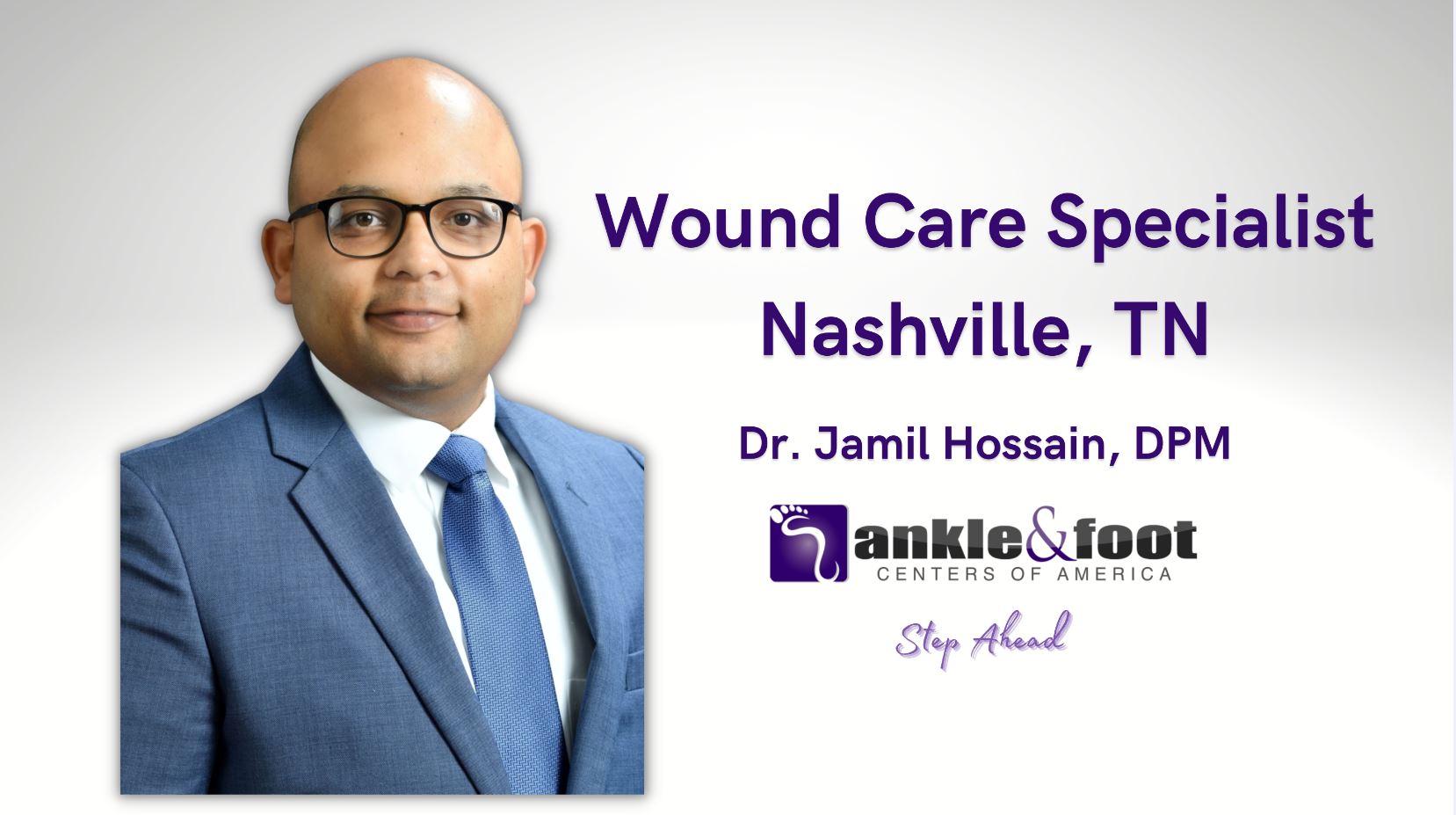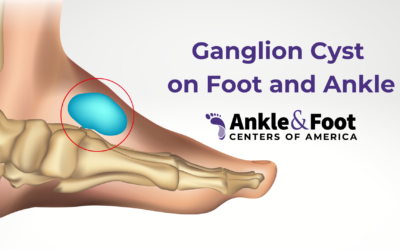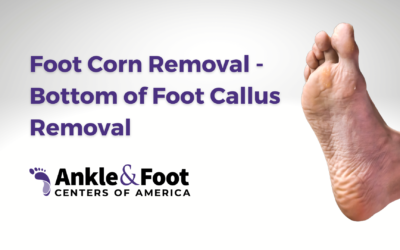Wound care is a critical aspect of healthcare, requiring specialized knowledge and expertise to ensure optimal healing and prevention of complications. In Nashville, TN, individuals seeking the best possible care for their wounds can turn to wound care specialists. These healthcare professionals possess advanced training and experience in diagnosing and treating various types of wounds. In this comprehensive guide, we will explore the role of wound care specialists in Nashville, TN, and provide valuable information to help individuals make informed decisions about their wound care needs.
Understanding Wound Care Specialists
Wound care specialists, also known as wound care nurses or wound care physicians, are healthcare professionals who specialize in managing and treating wounds. They possess extensive knowledge of wound healing processes, wound assessment techniques, and evidence-based wound care interventions. Wound care specialists play a vital role in providing comprehensive care to individuals with acute or chronic wounds, including surgical wounds, diabetic ulcers, pressure ulcers, and traumatic injuries.
To become a wound care specialist, healthcare professionals undergo specialized training and education in wound management. They acquire in-depth knowledge of wound types, etiology, and factors influencing wound healing. With their expertise, wound care specialists can accurately assess wounds, determine the underlying causes, and develop tailored treatment plans to promote optimal healing and minimize complications.
All About Wound Care Specialists
What is a wound care specialist?
 A wound care specialist is a healthcare professional who specializes in the management and treatment of various types of wounds. These specialists have extensive knowledge and experience in wound assessment, wound healing processes, and evidence-based wound care interventions.
A wound care specialist is a healthcare professional who specializes in the management and treatment of various types of wounds. These specialists have extensive knowledge and experience in wound assessment, wound healing processes, and evidence-based wound care interventions.
Types of wounds treated by wound care specialists
These experts are trained to treat a wide range of wounds, including surgical wounds, diabetic ulcers, pressure ulcers (bedsores), venous ulcers, arterial ulcers, traumatic wounds, and non-healing wounds. They have the expertise to assess the characteristics and underlying factors of each wound type to develop an appropriate treatment plan.
Diagnosing wounds: Methods and techniques
Wound care specialists employ various methods and techniques to diagnose wounds accurately. They conduct a thorough physical examination, assess the wound’s characteristics (size, depth, location), evaluate tissue viability, and consider the patient’s medical history. Advanced diagnostic tools such as wound imaging technology may also be used to provide a comprehensive assessment.
Treatments provided by wound care specialists
Wound doctors utilize evidence-based treatments to promote wound healing and prevent complications. They may employ a combination of interventions, including wound cleansing, debridement (removal of dead tissue), application of specialized dressings, use of topical medications, compression therapy, offloading techniques, and patient education on wound care and self-management.
Surgical interventions by wound care specialists
In some cases, wound care specialists may perform surgical interventions as part of the treatment plan. This may include debridement of necrotic tissue, wound closure procedures, skin grafting, or other advanced surgical techniques. These interventions are aimed at facilitating wound healing and promoting better outcomes.
Frequency of visits to a wound care specialist
The frequency of visits to a wound care specialist depends on the individual’s specific wound condition. Initially, more frequent visits may be necessary for wound assessment, treatment initiation, and monitoring. As the wound progresses and heals, the frequency of visits may be adjusted. The wound care specialist will determine the appropriate visit schedule based on the individual’s needs.
What to expect during a wound care appointment
During a wound care appointment, the wound care specialist will thoroughly assess the wound, document its characteristics, and review the patient’s medical history. They will discuss the treatment plan, answer any questions or concerns, and provide guidance on proper wound care at home. The specialist may perform necessary procedures such as wound cleaning, dressing changes, or debridement during the appointment.
Insurance coverage for wound care specialist services
Wound care specialist services are often covered by health insurance, but coverage may vary depending on the insurance provider and specific policy. It is important for individuals to review their insurance coverage and check if wound care specialist services are included. Contacting the insurance company or consulting with a healthcare professional can provide clarity on the coverage and potential out-of-pocket expenses.
Managing chronic wounds: Specialist’s role
Chronic wounds, such as diabetic ulcers or pressure ulcers, require specialized management to promote healing. Wound care specialists play a crucial role in managing chronic wounds by assessing the underlying factors contributing to the non-healing state, developing comprehensive treatment plans, and implementing advanced wound care techniques. They work closely with the patient to address underlying conditions, provide ongoing care, and support the healing process.
Collaborations with other healthcare providers
Wound care specialists often collaborate with other healthcare providers to ensure comprehensive and multidisciplinary care. They may work closely with primary care physicians, surgeons, podiatrists, endocrinologists, vascular specialists, and other specialists involved in the patient’s overall healthcare. This collaborative approach enhances the coordination of care and promotes better outcomes for patients with complex wound care needs.
Healing timeline for wounds under specialist care
The healing timeline for wounds can vary depending on factors such as the type and severity of the wound, the individual’s overall health, and adherence to the treatment plan. Wound care specialists monitor the healing progress at each visit and adjust the treatment approach as needed. While some wounds may heal within a few weeks, others may require several months or longer. The specialist will provide guidance on expected healing timelines and address any concerns regarding delayed healing.
Promoting wound healing at home: Tips and recommendations
Your Nashville podiatrists will emphasize the importance of proper wound care at home to support the healing process. They provide patients with detailed instructions on wound cleansing, dressing changes, and infection prevention. Additionally, they may offer recommendations on lifestyle modifications, nutrition, and strategies to optimize overall health, as these factors can significantly impact wound healing.
Recommended wound care products
Wound care specialists have extensive knowledge of wound care products and can recommend appropriate options based on the individual’s specific wound characteristics and needs. This may include specialized dressings, wound cleansers, topical ointments or creams, and compression garments. The specialist will guide patients on the proper usage and application of these products to ensure optimal wound healing.
Dietary considerations for optimal wound healing
Proper nutrition plays a crucial role in wound healing. Wound care specialists may provide dietary recommendations to support the healing process. This may include ensuring an adequate intake of protein, vitamins, and minerals that promote tissue repair. They may also advise individuals to maintain proper hydration and consider supplements if necessary. Personalized dietary guidance can significantly contribute to improved wound healing outcomes.
Preventive measures for wound infections
Preventing wound infections is a key focus of wound care specialists. They educate patients on proper wound hygiene, including techniques for cleansing and dressing the wound. Additionally, they may provide guidance on recognizing signs of infection and when to seek medical attention. By implementing preventive measures, individuals can minimize the risk of complications and promote successful wound healing.
Pain management strategies for wounds
Wound care specialists understand the impact of pain on patients and address pain management as part of the overall treatment plan. They utilize various approaches, including the use of appropriate analgesics, topical medications, wound dressings with pain-relieving properties, and non-pharmacological interventions. By effectively managing pain, patients can experience improved comfort and better engagement in their wound care regimen.
Signs of wound infection: When to seek immediate medical attention
Recognizing the signs of wound infection is crucial for timely intervention. Wound care specialists educate patients on common signs of infection, such as increased pain, redness, swelling, warmth, discharge with an unpleasant odor, or fever. They emphasize the importance of seeking immediate medical attention if these signs are observed, as prompt treatment can prevent the spread of infection and complications.
Patient and caregiver education provided by wound care specialists
Patient and caregiver education is a fundamental aspect of wound care provided by specialists. They empower individuals and their caregivers with the knowledge and skills needed to effectively manage the wound at home. This may include instructions on wound cleansing, dressing changes, recognizing signs of complications, and when to seek professional assistance. Education fosters active involvement and enhances patient outcomes.
Specialized wound dressings
 Wound care specialists are knowledgeable about a variety of specialized wound dressings available in the market. These dressings are designed to address specific wound characteristics and promote optimal healing conditions. Specialists select the most appropriate dressing based on factors such as wound type, exudate level, presence of infection, and patient comfort. They guide patients on proper dressing application and the frequency of changes.
Wound care specialists are knowledgeable about a variety of specialized wound dressings available in the market. These dressings are designed to address specific wound characteristics and promote optimal healing conditions. Specialists select the most appropriate dressing based on factors such as wound type, exudate level, presence of infection, and patient comfort. They guide patients on proper dressing application and the frequency of changes.
Assessing the progress of wound healing: Techniques and indicators
Monitoring the progress of wound healing is a critical aspect of wound care. Wound doctors utilize various techniques to assess the healing process and determine the effectiveness of the treatment plan. This may include:
- Regular wound measurements: Specialists measure the dimensions of the wound, such as length, width, and depth, to track changes over time. These measurements help evaluate the rate of healing and guide treatment adjustments.
- Wound appearance and tissue assessment: Specialists closely examine the wound bed, noting the presence of granulation tissue, epithelialization, or signs of infection. The overall appearance and color of the wound provide valuable insights into the healing progress.
- Evaluation of wound exudate: Specialists assess the amount, consistency, and characteristics of wound exudate, which can indicate the inflammatory response and potential complications. Adjustments to dressing choices may be made based on the exudate level.
- Pain assessment: Specialists consider the individual’s pain levels and evaluate changes in pain intensity throughout the healing process. This assessment helps determine the effectiveness of pain management strategies and overall healing progress.
- Patient feedback: Specialists rely on patient feedback regarding wound symptoms, discomfort, and functional improvements. Patient-reported outcomes provide valuable information about the individual’s perception of healing and quality of life.
By utilizing these assessment techniques, wound care specialists can track the progress of wound healing, identify any challenges or complications, and make informed decisions about the treatment plan.
Involvement of wound care specialists in research and advancements
Wound care doctors play an active role in research and advancements in the field of wound care. They stay updated with the latest evidence-based practices, emerging technologies, and innovative treatment modalities. By being involved in research and staying informed about advancements, specialists can provide patients with access to cutting-edge treatments and ensure the delivery of high-quality care.
Referrals to other specialists, when necessary
Wound experts understand the complexity of certain wounds and their underlying causes. In some cases, they may determine that a multidisciplinary approach is necessary to address specific aspects of the patient’s condition. In such instances, wound care specialists can provide referrals to other specialists, such as vascular surgeons, endocrinologists, plastic surgeons, or infectious disease specialists. Collaboration among different healthcare professionals ensures comprehensive care and optimal outcomes for patients.
Frequently Asked Questions
What services do wound care specialists in Nashville, TN provide?
Wound care specialists in Nashville, TN offer a wide range of services, including wound assessment, wound dressing and management, wound debridement, infection control, offloading techniques, compression therapy, patient education, and coordination of care with other healthcare providers. They develop personalized treatment plans tailored to each individual’s specific wound condition and needs.
How can I find a qualified wound care specialist near me in Nashville, TN?
To find a qualified wound care specialist in Nashville, TN, you can start by asking for recommendations from your primary care physician or other healthcare professionals. You can also check with local hospitals, wound care clinics, or healthcare networks for specialists who specialize in wound care. Online directories and search engines can provide a list of wound care specialists in the Nashville area, along with patient reviews and ratings to help you make an informed choice.
What qualifications should I look for in a wound care specialist?
When choosing a wound care specialist, it’s important to consider their qualifications and expertise. Look for specialists who have completed specialized training in wound care, such as certifications or advanced wound care courses. Board certifications in wound care, nursing, or relevant medical specialties can also be a good indicator of expertise. Additionally, consider their experience, affiliations with professional organizations, and their track record in managing wounds similar to yours.
What are the benefits of seeking care from a wound care specialist?
Seeking care from a wound care specialist offers several benefits. These specialists have in-depth knowledge and experience in managing complex wounds, which can lead to more effective and targeted treatment plans. They stay up to date with the latest advancements in wound care, ensuring access to cutting-edge treatments and techniques. Wound care specialists also provide personalized care, addressing the specific needs of each patient and offering comprehensive support throughout the healing process.
Do I need a referral to see a wound care specialist in Nashville, TN?
In many cases, a referral from a primary care physician or another healthcare professional is required to see a wound care specialist. However, it’s best to check with your insurance provider and the specific wound care clinic or specialist’s office to understand their referral policy. Some wound care clinics may accept self-referrals, allowing patients to directly schedule appointments without a referral.
How long does it take for wounds to heal under the care of a wound care specialist?
The healing time for wounds can vary depending on factors such as the type and severity of the wound, the individual’s overall health, and adherence to the treatment plan. Wound care specialists closely monitor the healing progress, provide ongoing care, and make adjustments to the treatment approach as needed. While some wounds may heal within a few weeks, others may require several months or longer. The wound care specialist will provide guidance on expected healing timelines based on the individual’s unique situation.
Conclusion
In conclusion, wound care experts play a vital role in the management and treatment of various types of wounds in Nashville, TN. These dedicated healthcare professionals possess the expertise and knowledge to provide comprehensive care, addressing the specific needs of individuals with acute or chronic wounds.
Throughout this comprehensive guide, we have explored the responsibilities and qualifications of wound care specialists. We have delved into frequently asked questions, shedding light on the services provided by these specialists and the benefits of seeking their expertise. Understanding the healing timeline, preventive measures, and pain management strategies discussed in this guide can empower individuals to actively participate in their wound care journey.
Additionally, we have provided valuable insights into related search queries, long-tail keywords, and expert recommendations to help individuals access the best wound care services in Nashville, TN. By utilizing the information presented here, individuals can make informed decisions when seeking wound care specialists, finding the most appropriate treatments, and ensuring optimal healing outcomes.
Remember, wound care is a complex process that requires specialized knowledge and an individualized approach. If you or a loved one is in need of wound care, it is always recommended to consult with a qualified wound care specialist in Nashville, TN. They will provide the personalized care and guidance needed to facilitate effective wound healing and improve overall well-being.
By prioritizing specialized wound care, you can ensure the best possible outcomes and pave the way for a healthier, more comfortable future.




